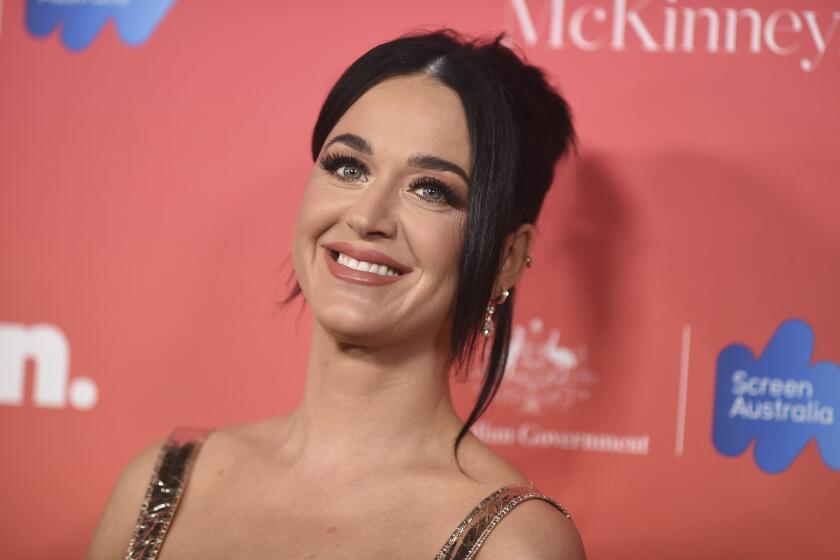Piracy Fight Spreads to Radio Airwaves
WASHINGTON — Afraid that music pirates could cruise the airwaves for booty, record labels want the government to make it tough for people to copy digital radio broadcasts.
The Recording Industry Assn. of America is expected to ask the Federal Communications Commission today to require broadcasters to either encrypt their digital signals or transmit a special marker that discourages replication.
RIAA Chairman Mitch Bainwol said association members were big supporters of the relatively new technology but added that “our enthusiasm is not blind.”
Digital radio -- also known as high-definition radio -- sends bursts of 1s and 0s over the same airwaves as conventional analog radio. It delivers CD-quality sound on FM stations and FM-quality sound on the AM band. It also allows the 100 or so stations broadcasting digitally to transmit information conventional stations can’t, such as real-time stock prices, which are displayed on special receivers.
Like virtually all forms of digital media, digital radio allows listeners to make perfect copies of the songs they hear, and at least one manufacturer, German consumer electronics maker Blaupunkt, already has introduced a car radio that lets listeners record digital broadcasts.
That unnerves the music industry, which blames slumping CD sales in part on the proliferation of online file-sharing networks like Kazaa and Morpheus that people use to download tunes for free.
The fight over digital radio could echo battles over digital television, which promises sharper pictures and clearer sound than traditional analog broadcasts. The rollout of digital television, originally scheduled to be completed in 2006, has been slowed, in part, by squabbles between studios and TV-set manufacturers over copy protection.
Bainwol said the developer of digital radio technology -- Columbia, Md.-based IBiquity Digital Corp. -- has told the RIAA that installing content protection “is not terribly hard to do.” Bainwol added that the association was “agnostic” on the particulars, as long as they would control unauthorized copying.
The recording industry’s fears of music theft on the airwaves could be overblown.
Only about 100 of the nation’s 13,000 stations -- including KKBT-FM (92.3), KTNQ-AM (1020), KSCA-FM (101.9) and KROQ-FM (106.7) in Los Angeles -- broadcast in the digital format, which was approved by the FCC in October 2002.
What’s more, radio transmissions aren’t ideal for copying: Disc jockeys often talk over music selections or interrupt them with ads, and also play heavily edited or shortened versions of many hip hop and pop music tunes rather than the lengthy or racy songs released on albums.
“With respect to digital radio, if it ain’t broke, don’t fix it,” said Michael Petricone, technology vice president at the Consumer Electronics Assn. in Arlington, Va. Petricone cited Britain, where digital radio has been in operation for five years with no evidence to support the RIAA’s piracy claims.
The “300,000-plus digital audio broadcast receivers in the U.K. have resulted in none of the harm predicted by the RIAA here in the U.S.,” Petricone said.
The association is asking for piracy controls as part of an FCC proceeding that will set digital radio service rules for broadcasters, telling station operators what services they can offer and establishing their public interest obligations.
In seeking the government’s endorsement of encryption technology or a digital audio marker, the RIAA hopes to follow the success of Hollywood studios that last year persuaded the FCC to adopt a similar “broadcast flag” marker in television to combat video piracy.
Broadcasters, however, seem uninterested in accommodating another copy protection scheme, saying it would disrupt the rollout of digital radio.
“The RIAA has known that digital radio was coming for nearly a decade now,” said Denis Wharton, a spokesman for the National Assn. of Broadcasters, a Washington trade group.
“They never raised this issue until we had stations on the air, and licensing deals and receivers in the marketplace. If their request is something that will stall the rollout of digital radio, that’s not something we would support.”
More to Read
The biggest entertainment stories
Get our big stories about Hollywood, film, television, music, arts, culture and more right in your inbox as soon as they publish.
You may occasionally receive promotional content from the Los Angeles Times.









